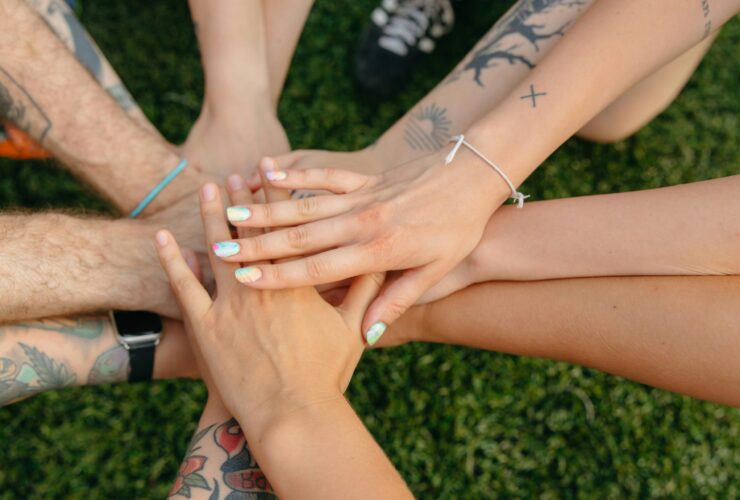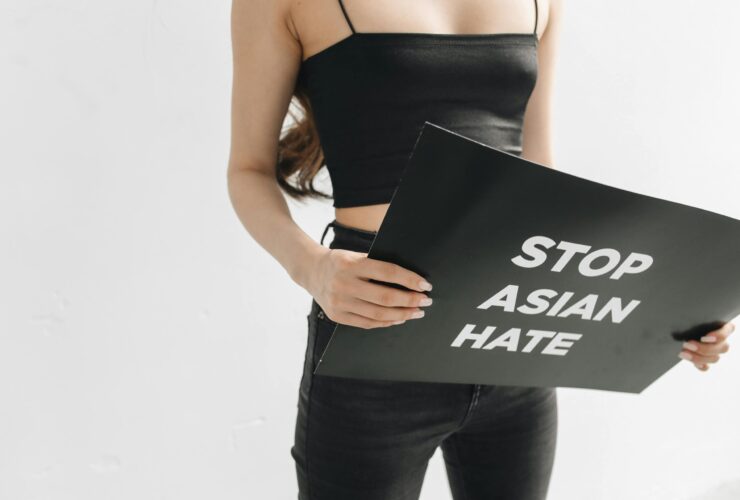Asian Therapists Talk About Holiday Grief, Intercultural Relationships, and Celebration
The holiday season offers great opportunities for joy, but can often also bring up a variety of difficulties for immigrants and immigrant families. In our podcast episode, we invited a panel of Asian therapists of different ethnic and immigration backgrounds to discuss the ways in which they’ve had to adapt to celebrating holidays in the United States.
Our therapists shared challenges that range from language barriers to cultural differences and family norms. As a 1.5 generation Korean American, Soo Jin Lee, LMFT, talks about the language barrier between her Korean-speaking parents, and her husband’s Chinese-speaking parents. She explains that communication often becomes vague, and the chain of translation leaves both her and her husband tired.
“When my in-laws & my family get together, they’re all speaking different languages – My husband and I have to sit right in the center of the table, where we do this 3-way translation… communication becomes very short.”
– Soo Jin Lee, Co-director of Yellow Chair Collective
Jessie Li, LMFT, a 1.5 generation Chinese American, shares that even when families are able to communicate, there are often still differences of culture and norms. Li describes experiences where she has invited both her parents and her in-laws for afternoon gatherings, during which her in-laws had expected food to be served but found themselves needing to head to In-N-Out after leaving the house. “I felt so bad, so embarrassed,” Li explains. “My family’s tradition is that we have very set meal times… Whenever we have guests over in between those times, we have fruit, tea, juice, or snacks to serve the guests, but not a meal.”
For those who do not have their families in the U.S. with them, another difficult experience involves carrying the responsibility of commemorating holidays that might not be widely celebrated in the United States. Samana Budhathoki, MA, shares that she often finds herself looking for ways to celebrate holidays that she used to celebrate back in Nepal.
“[Dashain & Tihar are] a month-long celebration with a 10-day gap… but as we speak, it’s a regular day. If I don’t advocate or share these celebrations with my partner, then it’s like it doesn’t exist… there’s no one around me to keep that tradition, so it gets a little hard at times.”
– Samana Budhathoki, MA
Asuka Garcia, LCSW, echoes the feeling of loss in not being able to celebrate your holidays and cultural traditions as you and your family would have prior to immigrating. She reminisces about her celebrations of the New Year in Japan, with 3 full days off and a procession of traditions. She shares that food would range from soba noodles on New Year’s Eve to the Osechi Ryori and mochi soup on New Year’s Day. Having immigrated from Japan 20 years ago, she remembers thinking that celebrating only 1 day felt strange and unfamiliar. “[New Year in the United States] just celebrates the New Year’s Eve to the New Year’s [Day]. So definitely in that sense I felt like ‘okay, this is it?’”
For many of our therapists, food became central to maintaining their connections with their cultural identity and heritage, even as the holidays themselves are celebrated differently. Often, holiday celebrations tend to look like potlucks, with each person bringing a dish from their own culture. While this can sometimes be trying, it can feel so meaningful to have that link to your family and your background. “I am not the best cook, to be able to prepare all of the special bento box and stuff… but when I have the chance, I at least try,” says Garcia.
“Food just takes you back to those moments… and you feel at home when you taste the spice, and [think of] who you ate that with – that becomes special.”
– Samana Budhathoki, MA
To manage the grief of losing access to traditional ways of celebrating holidays, many of our therapists have learned to find joy in trying and creating new holiday traditions. Growing up, Lee distinctly remembers being upset with her mother for not serving turkey like her peers’ families. “We kept talking about it in school… the whole month of November, everyone is making turkey, but I’ve never even tasted turkey or seen turkey in my life!” Lee laughs. Having tried turkey as an adult though, she reached the conclusion that she actually does not enjoy it. Li had a similar experience and expresses, “Now, we have our own new tradition – we get turkey from this Cantonese place that does roasted duck, and they do roasted turkey!”
As you navigate this season, maintaining cultural traditions and creating new ones, our therapists had these tips to share:
Jessie Li: It can be tiring to be continuously learning and navigating differences between cultures, but what makes it worth it is the joy that connection can bring.
Asuka Garcia: Regardless of the formality/structure that we’re supposed to have around holidays, we can still create our own meaning for our own gatherings.
Soo Jin Lee: For couples dealing with language barriers, finding non-verbal activities to be part of tradition can be helpful, such as playing Jenga.
Samana Budhathoki: The antidote to grief, loss, and isolation is to reach out and connect, whether through existing connections here or chatting with family and friends abroad. It’s about finding those little moments.
If you are experiencing difficulty in navigating holidays, immigrant experiences, or cross-cultural relationships, please reach out to us. Our therapists can help you process the grief of changing your cultural traditions and explore the different ways you can create meaning in your life.






